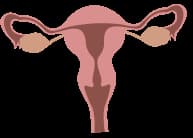What is PCOS ?
Polycystic Ovary Syndrome or PCOS is one of the most common hormonal disorders affecting women in their reproductive years, prevalent worldwide. Data suggests upto 1 in 5 women experiences PCOS. This may look like irregular periods, acne, excess hair growth, hair fall, mental health concerns & fatigue. The specific reason for PCOS is not clear. PCOS doesn’t happen due to a single cause. It’s a multifactorial condition, including:
1. Genetics - 20 - 40% women have first degree relatives with PCOS.
2. Insulin resistance - When cells can't utilise the hormone insulin appropriately, the body's need for insulin rises. The pancreas makes more insulin to counterbalance the perceived lack of this hormone, which triggers the ovaries to make more male hormones.
3. Raised androgen levels - Increase in the levels of insulin leads to heightened androgen production in the body, which is responsible for acne, hirsutism, mood changes, depression, and hair loss. This excess androgen also prevents ovulation, causing irregular periods and difficulty in conceiving children.
What are common symptoms of PCOS?
PCOS can impact various functions in your body based on the hormonal irregularity you experience. The symptoms can exist in different combinations for each individual. Symptoms can include:
1. Irregular periods (Inconsistent, delayed or lengthy periods)
2. Acne/hirsutism/hair fall
3. Weight gain
4. Fatigue
5. Mental health concerns
Experiencing some of these ? How to figure out if this is PCOS?
Gynaecologists globally use the Rotterdam criteria to diagnose PCOS, as per which women with PCOS usually have at least two of the three following conditions:
1. Irregular menstrual cycles
2. Ovaries show fluid-filled sacs or cysts on ultrasound scan
3. Signs of excess androgens ( male hormones) such as acne, hair loss , hirsutism ( growth of extra unwanted hair) on the face, chin, and other parts of the body.
A gynaecologist will look for symptoms of PCOS, based on which they may ask for tests to diagnose the condition. It’s important to rule out underactive thyroid before making a diagnosis of PCOS, as symptoms often look similar.
What if you have PCOS? What should treatment look like?
PCOS can look different for each person and your experience managing it has to be curated based on your symptoms, lifestyle & personal goals.
1. Lifestyle changes
This can help manage irregular periods, acne, hirsutism & weight caused due to insulin resistance & raised androgens.
a. Modify your diet to help reduce the weight gain caused by PCOS. Pro tip: Increase the fibre in your diet.
b. Reduce refined carbohydrate intake
c. Aim for at least 150 minutes of moderate-intensity exercise a week.
d. Good sleep and stress management techniques can also go a long way in managing PCOS symptoms.
2. Hair & skin care
a. You need to make sure that you’re using a good sunscreen and a good moisturiser. It is preferable to use gel-based moisturisers and sunscreens if you have very oily skin.
b. Also, have a cleansing routine. If needed, cleanse your skin twice and always clean it in the morning.
3.Medication
Medication can be prescribed by a gynaecologist to regulate periods, limit excess hair growth and regulate hormones. Starting medication is a choice, and it is important to clarify all your concerns with a doctor before taking this option. While PCOS management can seem complicated, consulting an experienced gynaecologist can help simplify your lifestyle and treatment plan.

